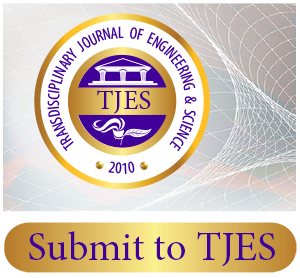Study on Hybrid Autonomous Trucking System (HATS) Problem Complexity
Abstract
The goal of this study is to break down and analyze the complexities surrounding the implementation of an electric hybrid autonomously controlled tracking system (HATS) for the mass transportation of goods. HATS represents a new category of commercial vehicles that exhibit both electric hybrid powertrains, and artificial intelligence for self-driving capabilities. Problem complexities are broken down from a social, economic and environmental perspective using a transdisciplinary approach. Study motivation arises from the fact that tons of goods are moved thousands of miles across the world using semi-trucks and in order to do so, thousands of drivers spend days on end out on the open road. This results in high CO2 emissions as well as loss of precious family time for drivers. As a potential solution, modern computing technology offers artificial intelligence (AI) to increase efficiency and replace these drivers all together. Considering this potential however, there are a significant number of issues surrounding the proposition that need to be solved before implementation can begin.


